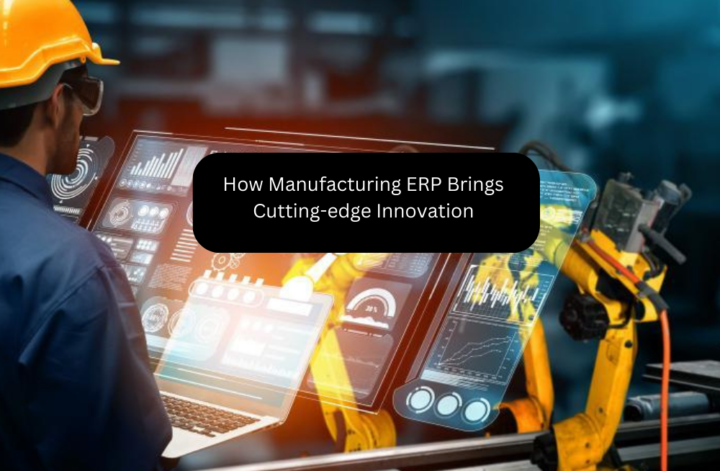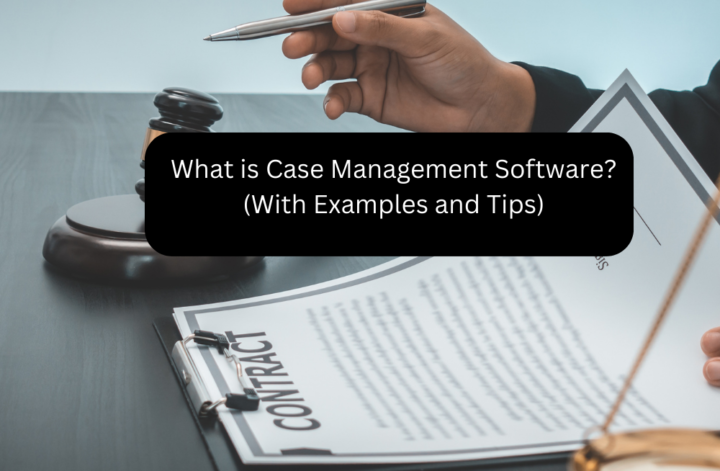What is Manufacturing ERP?
Manufacturing ERP is a single system of information management that brings coordination between different manufacturing activities, promotes the free flow of up-to-date information across different departments, and provides out-of-the-box solutions to bring accuracy into decision-making.
ERP software enables manufacturers to leverage modern technologies, such as Machine Learning, and the Internet of Things (IoT). It brings real-time visibility throughout different processes and makes it easier to deliver products with exceptional quality. Deploying an ERP helps your company in various ways from optimizing production processes, accurately forecasting demands, maintaining industry standards, and reducing instances of stockouts to maximizing your production capabilities.
Crucial Modules to Look for in Your Manufacturing ERP
Inventory Management
ERP can be a game changer when it comes to the planning and management of inventories. With a dedicated ERP, your business will benefit from optimal inventory levels and higher resource capacity. Planning and tracking inventory will be easier, and you will gain complete visibility into the inventory. Maintaining optimum inventory levels will help your company reduce inventory storage costs, enhance cash flow, and improve customer experience.
Product Lifecycle Management
Product Lifecycle Management is a critical module for manufacturing businesses. It empowers them to monitor and control product quality, track machine runtimes, define batch and serial numbers, log details regarding the completed processes, record the idle time of the machines, and enhance the overall production capacity. After collecting the required data, it generates customized reports that help you find inefficiencies and forecast production capacity and time required to deliver the final product.
Warehouse Management
Manufacturers are no stranger to high-volume warehouse operations. As such, the warehouse inventory can be often lost or misplaced, resulting in loss of time, productivity loss, and lost revenues. Warehouse Management is an important module that helps you keep a complete record of products, reduce the instances of lost or misplaced inventory, identify ideal locations for storage, and eventually lower the operating costs.
Maintenance Management
The Maintenance Management module enables manufacturers to manage timely maintenance and repair of machinery to achieve peak operational efficiency, ensure smooth functioning, prevent further damage to machinery, and prevent disruptions in business activities. A comprehensive Maintenance Management module supports both preventive and corrective maintenance strategies.
How Manufacturing ERP Brings Innovation
Timely Decision-making
ERP builds a single database consisting of pan-organizational information. With real-time access to information in one place, process optimization, and effective resource optimization, the top management can monitor activities across all departmental levels. They can make use of the information for accurate decision-making, resulting in market expansions, business growth, and transformation. With ERP, businesses gain clarity, comprehensiveness, and accuracy in decision-making. Delivering the right data to the right people at the right time becomes possible.
Precise Demand Planning
Demand planning is a complex and continuous process that requires deeply studying the market dynamics, acquiring customer feedback, and analyzing historical data. Manufacturing ERP enables manufacturers to take advantage of powerful tools that help them take an in-depth look into various factors that determine the demand for a product, make accurate predictions based on historical data, and forecast sales. Ultimately, the business becomes agile, meets customer demands on a timely basis, maximizes revenue stream, and gains a competitive advantage over others.
Meet Quality Standards
ERP allows manufacturers to ensure their finished goods meet modern quality standards and industry regulations. It gives them control over key aspects of manufacturing and helps identify defects at early stages. With automation, businesses can identify areas of improvement during the production process, and limit human interventions leading to oversights. They can prevent legal consequences, reduce returns & refunds, save costs, enhance customer satisfaction, uphold a higher brand image, and align to market standards.
Digitization of Financial Data
ERP replaces the traditional process of accounting with paperless digitization. It centralizes all financial data in one place so that decision-makers can get real-time insights into the financial health of the company. Replacing the manual way of data entry makes the accounting process easier, brings efficiency, and minimizes human errors. Furthermore, it contains robust Accounts Payable and Receivable capabilities that automate invoice generation & approval, reduce human errors, minimize processing time, avoid late fees, and leverage the use of Optical Character Recognition (OCR) and similar technologies.
Read: Beyond the Basics: Advanced Strategies for Dynamics 365 Migration Success
Lot Traceability
Manufacturing ERP enables on-time delivery of products through simplified inventory planning and management. Manufacturers can scan and store materials information in the database by simply scanning barcodes. ERP turns every lot into an independent and identifiable unit, which enhances transparency & accountability in the movement of products, reduces supply chain bottlenecks, and facilitates timely implementation of corrective actions. For example: As soon as a customer reports a defect in the product, manufacturers can identify an entire lot of defective production output to take timely corrective actions. Not only does it reduce waste, and save money, but also results in higher brand value.
Customized Reporting Capabilities
ERP empowers your business with tailored reports and powerful reporting capabilities that aid in timely & accurate decision-making. It converts complex data and statistics into easy-to-understand, intuitive charts such as tailored reports. Some of the examples of these reports include sales goals, inventory, market trends, revenue tracking, credit management, and employee overhead, among others. It is also possible to restrict access to confidential reports to only top-level management and disallow others from viewing them to protect the confidentiality of sensitive business information.
5 Signs Your Company Needs a Manufacturing ERP
Here are the top 5 signs that indicate your company needs an ERP:
- Your legacy systems are unable to communicate with each other, leading to delays and inefficiencies
- Your business is growing in size, but the legacy systems are incapable of supporting the increased scope of business operations
- You have tons of data scattered across different departments and spreadsheets, and it is becoming increasingly difficult to keep track of it
- There are frequent inaccuracies in decision-making due to access to obsolete or inaccurate data
- Every business department relies on different sets of data, leading to data silos, redundancies, and collaboration issues.
Wrapping Up
Long gone are the days when Manufacturing ERP was an exclusive domain of large, powerful multinational companies. Nowadays, small and mid-sized businesses are transitioning to an ERP to reduce errors, boost productivity, and effectively use the technology to grow and gain competitive advantages.
Sage X3 is a high-end ERP that benefits the critical aspects of the manufacturing process and brings efficiency to the procurement, design, engineering, supply chain, sales, and financial processes. Businesses that adopt ERP are more likely to be successful due to streamline internal processes, and increasing reliance on data and facts, rather than gut feelings.
Author’s Bio:
Sneha Rakte is a specialist in communication who excels at recognizing client requirements. She produces persuasive sales copy and high-converting content. She currently works with Sage Software Solutions, an industry leader in supplying small and medium-sized enterprises in India with high-quality ERP software and Manufacturing ERP.




